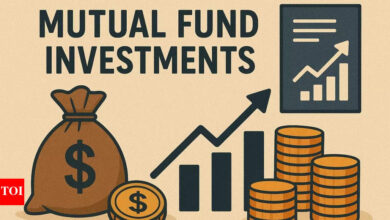Me and My Money: Striving for financial stability, she started a side hustle at age 9

SINGAPORE – Becoming self-sufficient and achieving financial stability had always been the holy grail for Ms Claire Tan.
From the age of nine, she has been on the hustle train, from selling paper stars to her classmates to baking goods for sale during special occasions.
Now, Ms Tan, 26, has two money-generating gigs going – as a real estate agent with ERA and also as the owner of her own Korean-style make-up business.
It all began when she started doing bridal make-up to earn some cash at age 17. By the time she was 20, she had left Ngee Ann Polytechnic to focus on setting up her own business called Ladyy Claire Makeup, which provides make-up and hairstyling services specifically designed for those with sensitive skin.
Her desire to achieve financial self-sufficiency started at a young age due to her family background.
“I grew up in a single-parent, low-income family and in that environment of scarcity, I knew that I had only myself to depend on for survival. From a very young age, I was focused and prudent about saving, earning and investing money because, unlike many of my peers, I was starting from a deficit.
“Therefore, making smart decisions, especially in making my money work hard for me, was essential,” she said.
When she was younger, she had only $2.50 to buy lunch for her younger brother and herself, Ms Tan said. “We could only order one fish burger from the Western food stall because that was the cheapest option. We didn’t even have enough to order a drink. My brother was a sweetheart and reassured me that the burger was yummy, but I felt really useless at that moment.”
She added: “It was then I realised that money is really important to provide for our loved ones.
“I promised myself to become self-sufficient so he would have someone to rely on if life became difficult. This commitment has been my main motivation for working hard and remains so to this day.”
Ms Tan, who is single, said her difficult background has taught her money habits that last till today.
“After receiving my profits or earnings, I prioritise setting some aside for my savings and investments before spending,” she said. “Additionally, I commit to substantial investment plans to plan for my retirement and am also saving money for my ideal property in the meantime.”
Q: What do you invest in and why?
A: I invest in stocks and reinvest back into my businesses. I have several investment plans with my financial adviser, and am looking at property investments.
My approach centres on diversification. While people often compare between stocks and property, I advise clients that these two are not mutually exclusive; having both is essential. This belief guides my own investment strategy as well.
Q: How did you get interested in investing?
A: My first exposure to investing was at 17, when I started a $250 savings plan to begin saving for my retirement.
Q: What has been your biggest financial mistake?
A: My biggest financial mistake was engaging in short-term trading without a strong understanding of the market. During a brief three-month period at the peak of Covid-19, I lost about $8,000. I realised that having a deeper knowledge of the market would have been beneficial before making such investments.
Q: What has been your best financial decision to date?
A: My best financial decision has been reinvesting profits in my businesses. While this step can sometimes be overlooked, it is often the most important investment for ensuring continued growth and success.
Q: Where’s home for you?
A: I live in an apartment in the east.
Q: What do you drive?
A: I prefer taking Grab due to the convenience.
Q: What was your childhood dream?
A: My childhood dream was to be a professional dancer. I fulfilled this dream in my teenage years, becoming a dance instructor at 17. I kept teaching until two years ago.
Q: What was your first job?
A: My first job was at a quaint bookstore when I was nine years old, where I helped the auntie arrange pens and pencils for sale, handling basic stock-taking and performing cashier duties – earning $3 an hour.
I have not stopped working since that age. After working and earning some capital from my bookstore job, I used that money to buy origami paper and star paper strips to make cranes and foldable stars, which I sold to my classmates for a profit during special occasions such as Mother’s Day or Father’s Day. I also picked up baking out of interest, but because we did not have an oven at home, I could only experiment with non-bake recipes and honed my skills from there.
When I was 11 to 12 years old, I ran a pre-order blogshop for Domo and Elmo merchandise (T-shirts mainly) for a profit. It was going well until one day I found my wallet empty; my father had taken the money to gamble, and I cried.
In secondary school, with another blogshop venture, I also bought an oven and made brownies to sell to my schoolmates during Valentine’s Day and Mother’s Day.
I continued these activities ad hoc, at a slow pace, until I was 16, the legal age to start working, and landed my first official job as a retail assistant and make-up artist with Estee Lauder. That’s when I experienced a job with a commission structure. I worked almost every day after my O levels, did not travel, and fought for sales. I was the top salesperson every single month for six months before starting polytechnic.
My polytechnic time was hectic. I started learning professional make-up and entered the bridal industry, doing freelance work to build my portfolio. I also taught two genres of street dance at four different studios. At the same time, I juggled a freelance marketing and business development role, helping an eyelash salon with its marketing efforts. I also completed a tax internship at a local company and a marketing and accounting internship with a recruitment firm in Shanghai.
When I came back, I decided not to pursue further studies, as I wanted to focus fully on working and seizing business opportunities, so I dropped out. That’s when I started Ladyy Claire Makeup, and a few years later, once that was stable, I ventured into real estate.
One of the things I am proud of in my real estate career is participating in the property reality series Home Run: Singapore, where I won the title of top agent.
Q: What would your perfect day look like?
A: To me, a perfect day would be waking up at a quiet resort with a linear sea view and a pristine sandy beach, with no to-dos on my list.
Money Matters
Q: What would you do if you suddenly had a windfall of millions?
A: I would immediately make a down payment on my next property.
Q: If you suddenly only had $100 to your name, what would you do with it?
A: I’ve been there before. I’d use that $100 as capital to make more money through low-cost businesses such as baking.
- Sue-Ann Tan is a business correspondent at The Straits Times covering capital markets and sustainable finance.
Check out the Headstart chatbot for answers to your questions on careers and work trends.
Source link




